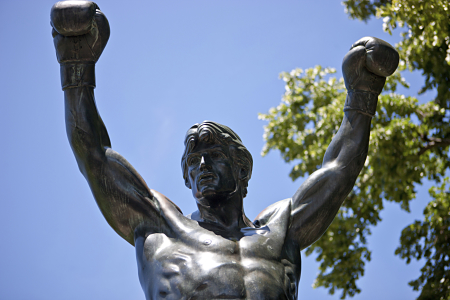Uber has condemned the Philadelphia Parking Authority (PPA) for allegedly conspiring with the taxi industry to thwart the company’s efforts in Philadelphia.

Uber is allowed to operate in other Pennsylvania cities – but not Philly.
Uber Philadelphia General Manager Jon Feldman called the PPA an “unelected, unaccountable body and now know it’s untrustworthy as well.”
Feldman, in a press conference, said the PPA made a concerted effort to prevent the growth of Uber in Philadelphia, conspiring with taxi companies to target illegal Uber drivers.
"The PPA is anything but an independent public agency," Feldman said. "It is acting essentially as a publicly funded lobbyist working in secret to stop Philadelphians from having access to ridesharing."
PPA Executive Director Vince Fenerty responded publicly to Uber’s claims.
"In spite of the impression given in the news media, the PPA has not picked sides. The PPA has repeatedly met with representatives of all service providers -- including Uber founder Travis Kalanick. The PPA does not oppose UberX or Lyft operating in Philadelphia. The PPA supports the New York City regulatory model which integrates their existing medallion taxicab system with the newer TNCs like UberX and Lyft into their overall for-hire transportation system. New York City requires UberX and Lyft drivers to be trained and criminal background checks performed, and their vehicles be inspected and insured - none of which is verifiable with the current law as it exists for Philadelphia,” said Fenerty.
“The goal of the Philadelphia Parking Authority's push for regulation of new transportation network companies (TNC) like Uber X and Lyft, is based on the need to ensure public safety and fair competition, so that all players in the for-hire transportation industry are playing by the same set of rules. Currently that is not the case. The PPA's twelve-year struggle to improve taxicab service in Philadelphia is well documented. Against strenuous and costly legal opposition from the taxi industry, the PPA has imposed higher vehicle standards, driver training, credit card payment systems, wheelchair accessible vehicles and more recently, safety camera systems to help protect both drivers and passengers. The PPA's position is clear, open and transparent. Each transportation provider has a role to play. Each must adhere to basic regulatory requirements to insure public safety and accountability. The PPA will continue to work towards that goal,” he added.
Uber is taking the legislative route, which has proved successful for the company in other markets. Feldman said Uber is urging the Pennsylvania state legislature to get a bill passed that would legalize the ridesharing service in Philadelphia. The most tangible weapon Uber has in its advocacy is a petition signed by 100,000 supporters.
The latest skirmish between Uber and the PPA came when the authority conducted a sting operation by having undercover officers use the Uber app to call cars to pick them up. PPA officers waited at the destinations and impounded the drivers’ cars upon arrival.
The PPA says it is simply enforcing state law by cracking down on transportation network services, which use mobile apps to connect drivers and riders but are not licensed to operate within city limits.
Philadelphia Mayor Jim Kenney, who took office in January, is an UberX supporter who has used the service.
Last year, while on City Council, he sponsored a resolution calling on the state to legalize UberX and Lyft in Philadelphia, saying that city residents are being "unfairly discriminated against" by state regulations that allow the companies to operate everywhere but in Philadelphia.
The City Council unanimously approved Kenney's resolution last year; the city's entire state Senate delegation voted in November for a bill to legalize ride-sharing, and Gov. Wolf believes that the services "should be in Philadelphia and all through Pennsylvania, and we should be finding ways to help them grow," spokesman Jeff Sheridan said.
A Senate bill, which would legalize UberX and Lyft in Philadelphia, passed by a vote of 48-2 in November. It has been referred to the House Consumer Affairs Committee.
Taxi medallion owners and drivers oppose ride-sharing companies because they provide a cheap alternative to taxis and cut deeply into their profits. The PPA claims that the services are unsafe.
"The PPA's primary concern has always been and continues to be public safety," said Fenerty. "Because of the absence of regulation, there is no assurance that any of these drivers have the appropriate training, or have had their driving records and backgrounds checked for any prior criminal convictions. We also do not know if any of these ride-sharing vehicles have been inspected or if they are insured."
Uber spokesman Matt Wing said that the company performs background checks and that drivers must ensure that their cars pass state inspection. He said each UberX trip in Philadelphia is covered by a minimum $1 million of primary commercial liability insurance.
"Every issue the PPA raised are things Uber already does on its own," Wing said. "The only difference is the PPA doesn't get to collect the fees associated with them, which means less money for them to spend on lobbyists."
Lyft spokeswoman Chelsea Wilson said: "Any evidence that shows public officials coordinating with the industries they regulate to harm competition should be of major concern to policymakers."
